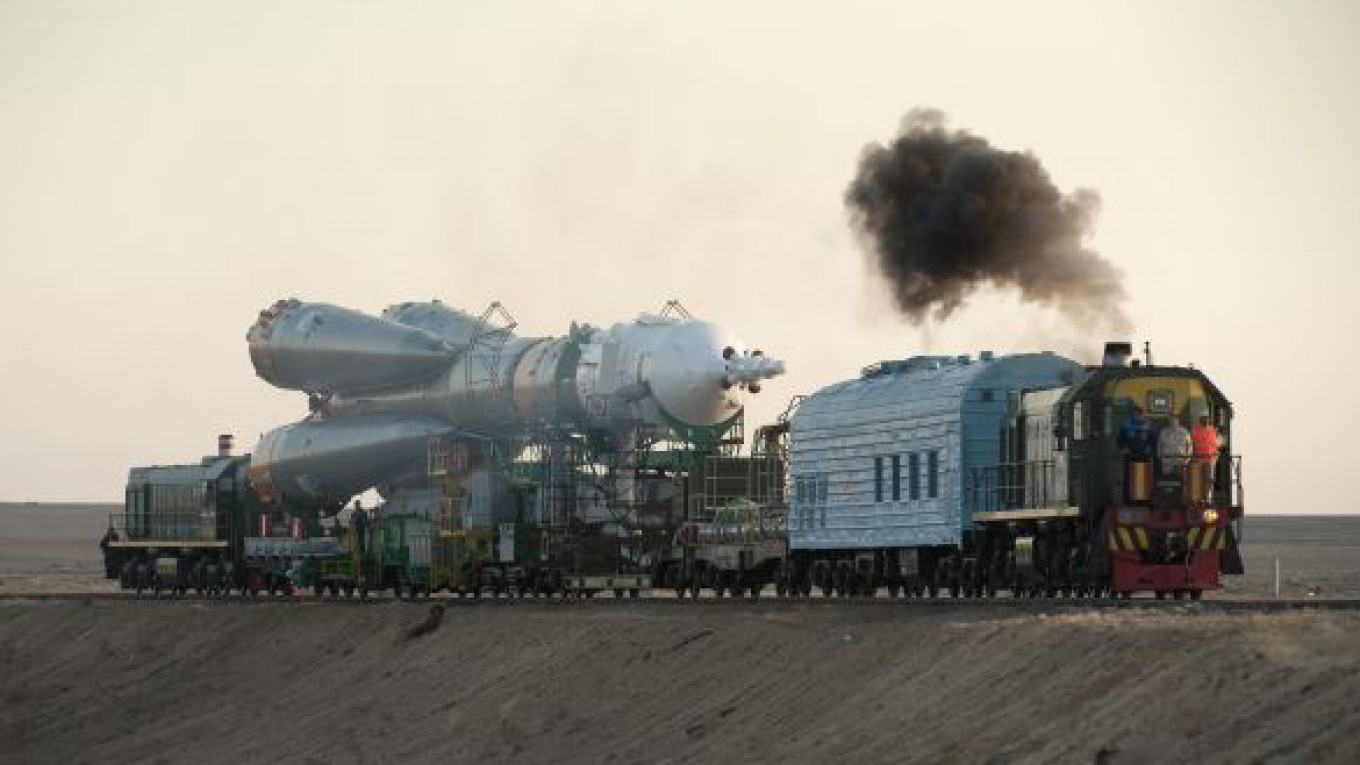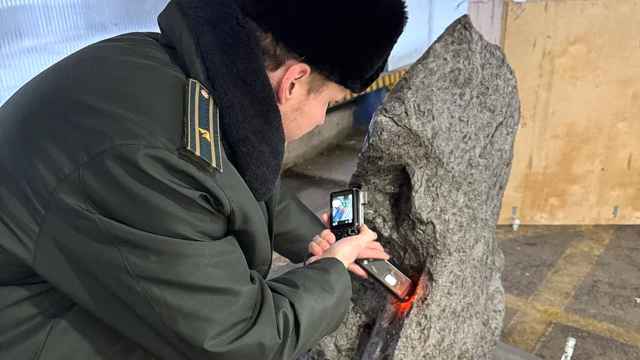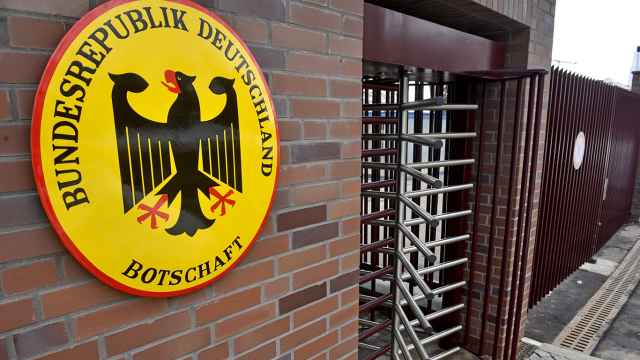ASTANA — Russia is holding up the transfer of a space launch facility currently under construction to Kazakhstan, the head of the Central Asian nation's space program said Thursday.
Baiterek, which is being built at the Russia-leased Baikonur cosmodrome, is central to Kazakhstan's ambitions to become a space power, but progession on its completion has been marred by disagreement on how to develop the project.
Kazcosmos space agency chief Talgat Musabayev said Thursday that Baiterek was being considered by Russian federal agencies and had resultantly been delayed.
Musabayev last year announced a revision to plans agreed in 2004 to develop Baiterek as a launch pad for Russia's modular Angara rocket. The facility will be converted to a launch platform for the Ukraine-built Zenit rocket, Musabayev said.
Angara, which is still under development, is instead to be launched from the Vostochny spaceport in Russia's Far East. That option is seen as a way for Russia to reduce its reliance on Soviet-built Baikonur, which is located in a remote spot in southern Kazakhstan.
Ties between the countries were strained over the cleanup costs of 600 tons of toxic propellants spilled when a Russian Proton rocket crashed at Baikonur in July.
Musabayev said last month in an interview with Izvestia that tensions between the Kazcosmos and Roscosmos space agencies had been defused following a change in leadership at the latter in October.
In January, President Vladimir Putin announced a joint three-year roadmap for Baikonur that included provisions for the transfer of the Baiterek facility, Musabayev said in the interview.
Russian media cited a source in January at the United Nations as saying the delay in the transfer of Baiterek was primarily being caused by Kazakhstan's nonmembership in the Missile Technology Control Regime, or MTCR.
The agreement, adopted by the G7 in 1987 and joined by Russia in 1995, regulates the transfer of technologies that can be used to build nuclear-capable missiles.
Russia's space industry could potentially face sanctions if the transfer of the launch facility to Kazakhstan was ruled a violation of MTCR.
Kazakhstan has previously announced an intention to join MTCR.
Russia ran afoul of the regime in the early 1990s, before it was a signatory, over a cryogenic rocket engine deal with India.
Moscow currently leases Baikonur, which boasts 15 launch pads for manned and unmanned space launches, from Kazakhstan for an annual rental fee of $115 million.
A Message from The Moscow Times:
Dear readers,
We are facing unprecedented challenges. Russia's Prosecutor General's Office has designated The Moscow Times as an "undesirable" organization, criminalizing our work and putting our staff at risk of prosecution. This follows our earlier unjust labeling as a "foreign agent."
These actions are direct attempts to silence independent journalism in Russia. The authorities claim our work "discredits the decisions of the Russian leadership." We see things differently: we strive to provide accurate, unbiased reporting on Russia.
We, the journalists of The Moscow Times, refuse to be silenced. But to continue our work, we need your help.
Your support, no matter how small, makes a world of difference. If you can, please support us monthly starting from just $2. It's quick to set up, and every contribution makes a significant impact.
By supporting The Moscow Times, you're defending open, independent journalism in the face of repression. Thank you for standing with us.
Remind me later.






